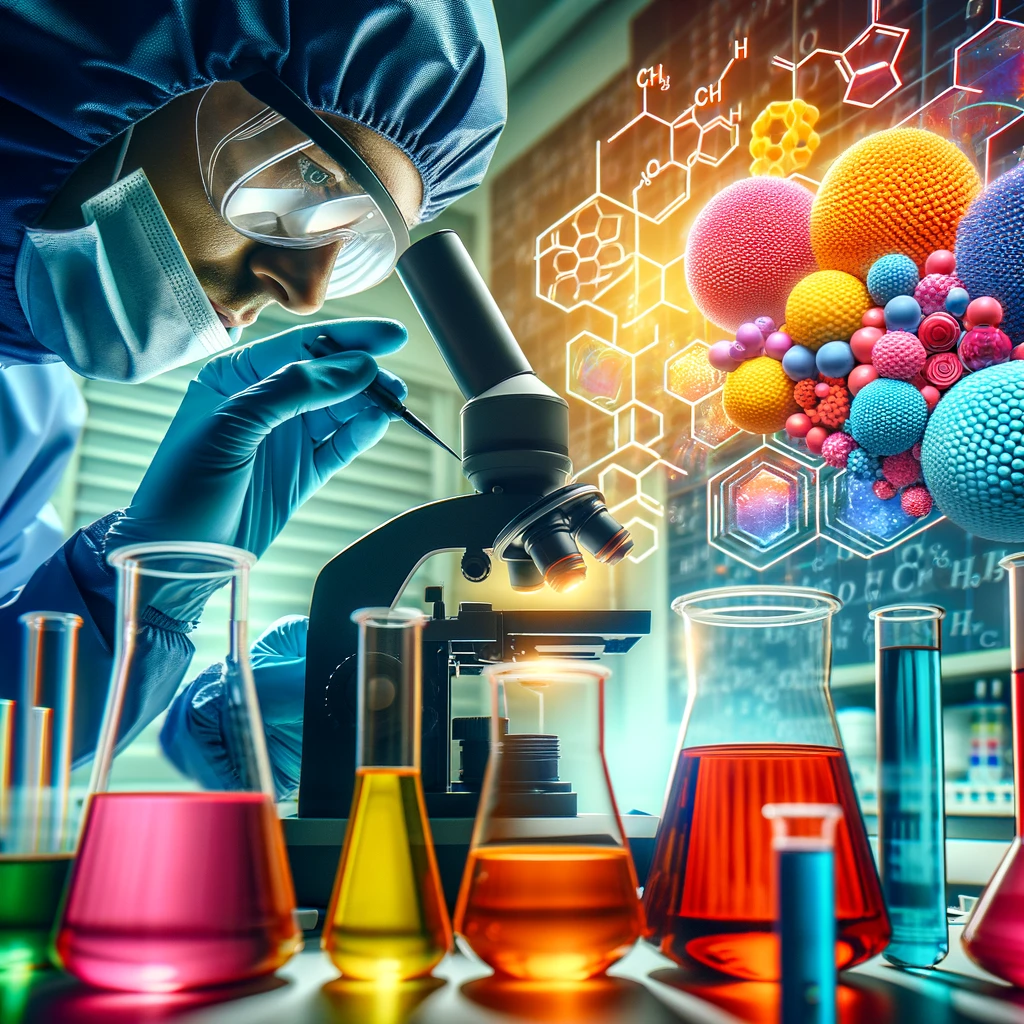Table of Contents
Industrial coatings Chemistry play a crucial role in protecting materials and structures from corrosion, wear, and environmental damage. Understanding the chemical composition of these coatings is key to optimizing their performance and durability. This article explores the core components of industrial coatings and how they contribute to the coatings’ protective properties.
Introduction to Industrial Coating Chemistry
Industrial coatings are complex chemical formulations designed to provide a protective barrier for a variety of materials. The chemistry behind these coatings is critical for their ability to protect against corrosion, withstand extreme temperatures, and resist chemical exposure. (P)
Key Components of Industrial Coatings
- Resins Resins form the backbone of industrial coatings, determining the adhesion, durability, and resistance properties. Depending on the application, epoxy, polyurethane, or acrylic resins are commonly used.
- Pigments Pigments provide color and contribute to the coating’s ability to prevent corrosion. Some pigments also offer additional protective properties, such as UV resistance.
- Solvents Solvents are used to adjust the viscosity of the coating for application purposes. The choice of solvent affects the coating’s drying time and final appearance.
- Additives Additives enhance specific properties of the coating, such as flow characteristics, anti-settling, and resistance to environmental factors.
What is the impact of chemical composition on coating performance?
Understanding the chemical composition of industrial coatings is essential for selecting the right coating for a specific application. Advances in coating chemistry improve the performance and environmental sustainability of industrial coatings, ensuring they meet the demands of modern industrial applications.
Advancements in Industrial Coating Chemistry
Recent advancements in industrial coating chemistry include the development of more environmentally friendly formulations, improvements in durability and performance under extreme conditions, and innovations in self-healing and smart coatings that respond to environmental stimuli. (P)

The Impact of Chemical Composition on Coating Performance
Understanding the chemical composition of industrial coatings is essential for selecting the right coating for a specific application. Advances in coating chemistry continue to improve the performance and environmental sustainability of industrial coatings, ensuring they meet the demands of modern industrial applications.
FAQ:
What Role Do Resins Play in Industrial Coatings?
Resins are crucial for providing the structural backbone of coatings, offering adhesion, durability, and resistance to environmental factors.
How Do Pigments Contribute to Corrosion Resistance?
Pigments not only provide color but also contribute to corrosion resistance, with some offering additional protective properties like UV resistance.
What Are the Latest Advancements in Industrial Coating Chemistry?
The latest advancements include eco-friendly formulations, enhanced durability, and the development of smart coatings that can self-heal or respond to environmental changes.
Can Industrial Coatings Be Customized for Specific Environmental Conditions?
Yes, industrial coatings can be customized with specific chemical compositions to enhance their performance in various environmental conditions, including extreme temperatures, high humidity, and chemical exposures.
conclusion
In conclusion, the advancements in industrial coating chemistry have revolutionized the field, offering numerous benefits in terms of environmental sustainability, durability, and performance. The development of more environmentally friendly formulations ensures that coatings can be used without causing harm to the ecosystem. Moreover, improvements in durability and performance under extreme conditions allow coatings to withstand harsh environments and protect surfaces effectively. The introduction of self-healing and smart coatings adds a new dimension to industrial coatings, as they can repair themselves and respond to environmental stimuli, enhancing their functionality and longevity. Overall, these advancements in coating chemistry components have significantly impacted the industry, providing enhanced protection and efficiency in various industrial applications.




